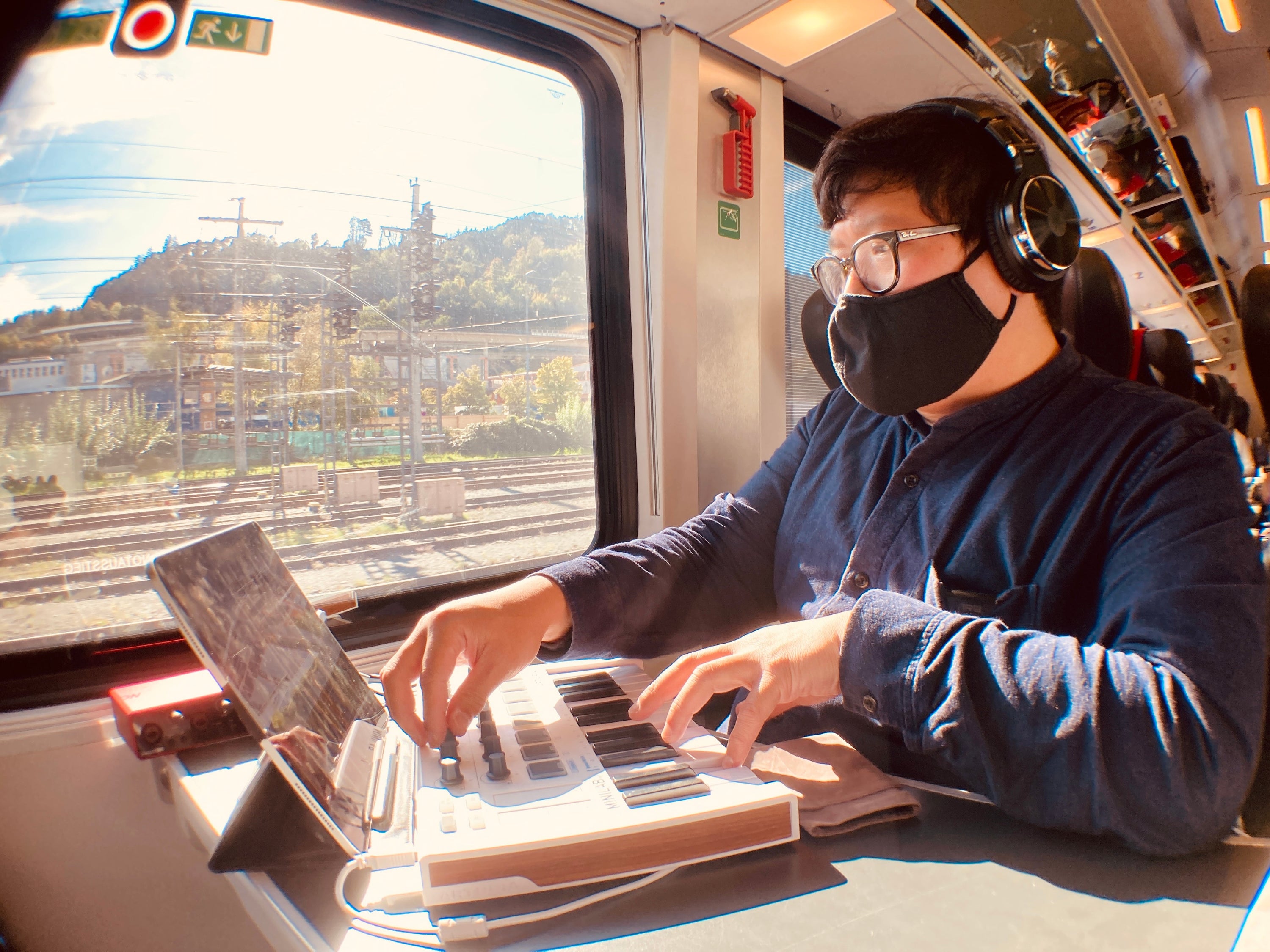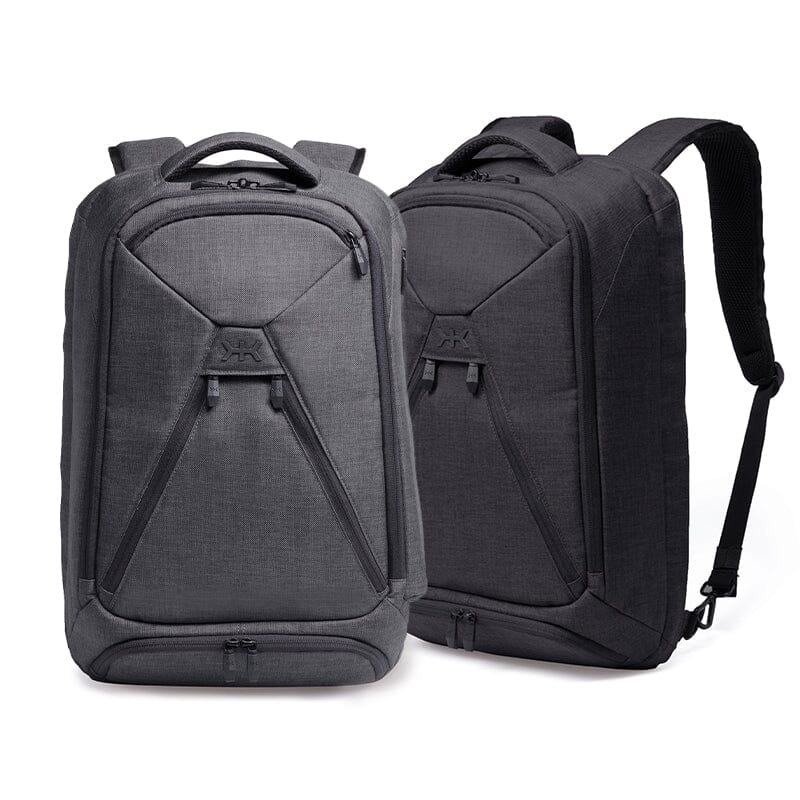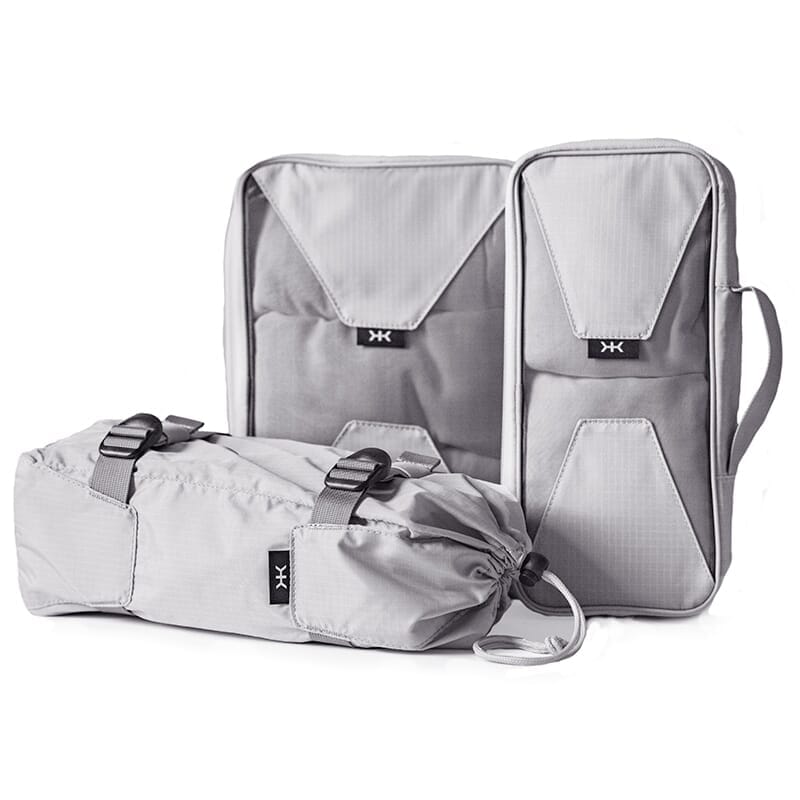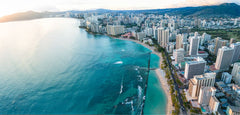
My name is Ted Reyes and in September of 2021, I decided to become a global nomad after working at a television network for a decade. It was a job I loved and was quite good at. When the COVID-19 pandemic started, my company asked me to work from home like everybody else, and, surprisingly, my team and I did a great job. I oversaw the multiplatform production of high-priority shows and live events. It was a crazy time of optimum productivity, but it also forced me to revisit my priorities. COVID was a great awakening. I started meditating and developed a new way of life that put preeminence on the present moment. I came to realize that life is only possible NOW.
Then the pandemic started to slow down, so our company required all employees to report back to the office in a hybrid setup beginning that fall. I didn't want to return, so my wife and I decided to leave everything behind and go on a global nomad adventure.
We gave up our one-bedroom apartment in downtown Jersey City, rented a small storage space for our stuff, packed backpacks, and worked and lived in a staggering amount of places: Lisbon, Sintra, Porto, Zurich, Grindelwald, Salzburg, Vienna, Budapest, Prague, Paris, London, Glasgow, Amsterdam, Berlin, Rome, Newcastle, Normandy, Mexico City, and Cancun. This August, we're planning to go to Tokyo, Osaka, Hiroshima, Seoul, Bangkok, Singapore City, Ho-Chi Minh City, Hong Kong, and Manila.

It's been a crazy but life-affirming adventure. We've met wonderful people, learned new languages, seen breathtaking sights, tasted exquisite food, and immersed ourselves in many different cultures that are incredibly rich and beautiful. Yes, we found that there is life beyond the Hudson River.
However, the global nomad lifestyle is not for everybody. Some family members think we've gone completely crazy and are downright irresponsible. We get it. It's an odd, and even tricky, lifestyle.
So what do you need to do to become a global nomad? Here are five things we've learned that will help you succeed as a global nomad:
- Find Remote Work
- Get A Reliable Mobile Data Plan
- Make A Good Travel Plan
- Let Go of Your Expectations
- Use the Right Bag
Find Remote Work
We were surprised at the number of opportunities that allow you to do your job remotely. To start, go to LinkedIn or Indeed and add “remote” to your job search term. You may be surprised at what shows up. Once you have some potential opportunities, there are four things you should think about in order to land your remote job:
- Keep your resume focused on things you can do remotely. For example, in my field, Content Development and Management, I focused on my ability to conduct shoots in varied locations and my ability to deliver content promptly. I didn’t include items that required my on-site presence like my stage production skills or my experience as a 1st or 2nd Assistant Director.
- Be upfront that you will work 100% remotely. Do not wait for the first or second interview. Make it clear when you send your application that you will not be in the office.
- Sell the fact that being in different time zones is an advantage. When you land an interview, tell your prospective employer that you will be moving around and your time zones will vary depending on your location. Establish that you can get the work done on their deadlines regardless of where you are. For example, my New York-based clients for music productions loved that I was six hours ahead when I was in Europe because I can QA releases before they go live in the States.
- Sell the global nomad lifestyle as a benefit to your employer. Tell them about your exposure to various cultures and how that diverse perspective can benefit their business.
Get A Reliable Mobile Data Plan
While most places in Europe have excellent Internet services (Berlin, Budapest, Prague, and Lisbon are the fastest in our experience), other places in the world don't. For example, Mexico and Greece have below-average speeds. And that is why it's critical to have a backup in the form of your smartphone. Cellular service is almost everywhere, so if Wi-Fi isn't cutting it, connect your laptop to your phone via hotspot. U.S. carriers charge an arm and a leg for international roaming and data service. But instead of local carriers, we used Google Fi. It connects to the major wireless carriers in any country and you pay a flat fee. We pay $140/month for two lines with unlimited data, calls, and text. Its 5G network is blazing fast. While local U.S. carriers will do the same (i.e. connect to local partner carriers), they usually charge per gigabyte and talk and text are not unlimited. Honestly, we never used U.S. carriers after we got burned by a massive bill after a week's vacation in Spain. If Google Fi is not for you, another option is to use prepaid local SIM card plans once you arrive in the country.
Make A Good Travel Plan
You cannot be a global nomad if you're not a good travel planner. I am not, but thankfully, my wife is. Aside from being an excellent social media manager and creator, she is a master at creating itineraries. She learns everything there is to know about the cities we plan to visit: transportation schedules; the best markets, supermarkets, and restaurants; the most affordable accommodations; and the most interesting cultural activities.
We're both pop culture and history geeks, so she always begins her travel plan by searching for places that tie to our interests. For example, we both love The Sound of Music, so when we were planning a trip to Europe, she searched Salzburg, Austria, to get a general view of the city and Google Maps to mark points of interest. After basic Google searches, she then goes to Reddit for local insights regarding internet speeds, safety, global nomad population, local markets, cheap eats, transportation, and more. Then she looks for affordable flights on Google but buys them on the Airline websites to get mileage points. Lastly, she searches for good accommodation deals on Agoda.com, Airbnb, or hotels.com. She does this last because, according to her, COVID changed the accommodation game. You can easily book accommodations the same day you check in because of the uncertainties brought about by the pandemic. Closures and lock-downs are unpredictable, so hotels and landlords are more open to late bookings. Booking late is often cheaper, especially if you book on weekdays (always avoid Friday and Saturday check-ins if possible: they are expensive.). She usually prefers Sunday check-ins because it’s technically the “end of the weekend”, where guests check out and you save a lot of money.
So as you can see, my travel planner has it all figured out. All I need to do is show up. However, if you are not married to a travel planning genius, do your research. Knowledge, before you leave, is critical to having a smoother experience as a global nomad.
Let Go Of Every Expectation
As a global nomad, every place you live and work will be different. So, if you are clinging to the comforts of your current apartment or office, you have to let go to maintain your sanity.
Embrace the experience. The important thing is you are there, and a new adventure is about to begin. Is the shower not hot enough? Get over it. Take a deep breath and take that icy shower. Is the internet not fast enough in your hotel or Airbnb? Find a cafe where the global nomads hang out or work in a public library. One time, we got a great deal on a two-bedroom flat in Europe near an old town square. It was splendid and affordable but had one tiny, uncomfortable feature: one of its windows directly faced an active town morgue. So we closed the drapes and mentally moved on. Again, leave your expectations behind and embrace the uncertainties and the changes.
One Bag To Rule Them All
As a global nomad, the lines that divide work, play, and travel are completely blurred. We've worked in the most unusual places: cross-country sleeper trains, cable cars, gondolas, park benches, coffee shops, cathedrals, Ubers, airports, airplanes, docks, hostels, taquerias, chip shops, beaches, and more. The secret to being productive in all these varied places is to have everything you need in one bag.
In our case, here is what we always carry with us:
Work Items
Laptops
Tablets
DSLR Cameras
Lenses
Gimbals
Midi Controller
Extra Monitors
Audio Interface
Mics
Cables
Headphones
Notebooks
Water Bottles
Pens
International Power Adapters
Travel Items
Passports
IDs
Covid Vaccination Cards
Covid Rapid Tests and Results
Personal Items
Credit Card
Laundry Supplies
Umbrellas
Sunglasses
Extra Shoes
Slippers
Toiletries
A week's worth of clothes
Medicine
Makeup :)

Believe it or not, my wife and I can fit all these things into our backpack because we carry Expandable Series 2 Medium Knack Packs™. When you're always on the move, we found it is critical to have a bag that can hold all your essentials while also being lightweight, durable, water-resistant and, importantly, doesn’t make you look like a hiker.

As content creators, we are always ready to capture anything when inspiration strikes. You cannot do this if you are carrying multiple bags at the same time. We found it is just too cumbersome and limits your mobility. For example, on a high-speed train from Amsterdam to Berlin, a news publication with a tight deadline asked me to score a video for them. Since I had all my equipment readily on hand in my Knack, I was able to take out what I needed immediately and start working. As a result, I was able to deliver the final score on time.
We found that being global nomads can be challenging, but it is an incredibly fun and rewarding lifestyle as long as you have the right attitude and equipment.
Are you a global nomad? Share your tips and tricks in the comments below. We’d love to hear your thoughts for future blogs.






